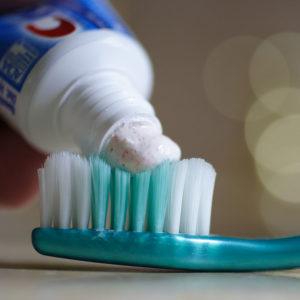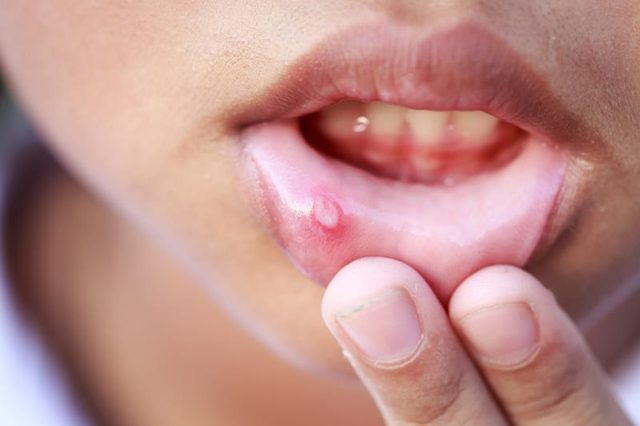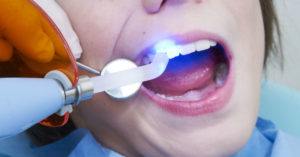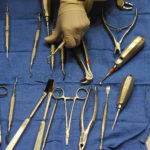Table of Contents
What is Oral Hygiene and Why is it Important?

Oral hygiene can be broadly defined as the practice of taking care of one’s mouth and keeping it clean and disease free. It also involves keeping your mouth free of a host of other problems such as bad breath by brushing regularly. Flossing and other such activities are also included in oral hygiene. It is necessary to practice oral hygiene on a regular basis to prevent a variety of oral as well as other health problems.
The mouth is a door to the overall health and fitness of the human body. Hence, oral hygiene and health touch almost all the aspects of our lives. However, we still take it for granted. The mouth can also be considered as a mirror to our bodies as it can display the signs of a variety of things that are going wrong in the body. It can show the signs of nutritional deficiencies as well as general infections. The mouth also shows the first symptoms of many chronic and severe diseases as well.
Oral health is important at every age. It does not matter whether you are 7 or 70, keeping your mouth clean and healthy is a must. Due to modern amenities and research, a large portion of developed nations such as the USA, etc. enjoy excellent oral health. They also tend to keep their teeth throughout their lives. However, cavities are still one of the most common of oral problems. It is estimated that almost 100 million Americans avoid seeing a dentist each year. Many people do not understand that a regular oral checkup is as important as a regular general checkup. People believe that they need to visit a dentist’s clinic only when they have some oral problem or pain. However, these people need to understand that regular visits to dentists can contribute their overall health and fitness. Hence, never put off going to a dentist. Nowadays, the visits to dentists are not as painful as they used to. Thanks to scientific and medical advancement, your visit to a dentist’s clinic will be relatively and almost painless.
Many people believe that flossing and brushing are only important for cosmetic and social reasons. They believe that regular brushing and flossing only contribute to the health of their gums, teeth and oral cavity and prevent halitosis and maintain minty and fresh breath. Now, the characteristics mentioned above are true and important. However, there is much more to oral health and hygiene than these things. Proper oral hygiene is also necessary to maintain overall physical and mental health.
Importance of Oral Hygiene
In this section let us go through the various benefits of having good oral hygiene.
Nutrition

The mouth is considered to be the first step of the digestive process and the first organ of the digestive system. The first and foremost function of teeth for modern human beings is chewing food. With the help of teeth, the food is broken into small particles that are easy to swallow. The next step is the mixture of saliva in the food particles. This mixture is necessary for proper digestion. Thus, the mouth forms an integral part of the digestive system. Poor oral health can cause problems in this process that can hamper your ability to consume nutritious foods. You cannot consume food if your teeth give you pain or there are certain problems with your gums.
What Does Your Oral Health Reveal About You?
Your mouth is like a door to your body, and it can reveal a lot of things about you and your health. Even a swab of saliva can help a doctor know a lot about you. Let us now have a look at what your mouth reveal about you.
Signs and Symptoms

As said earlier, your mouth is like a door to your body, and it serves as a vantage point for diagnosis and detection of a variety of problems. Many systemic diseases and disorders show their first signs in your mouth. Diseases such as diabetes, AIDS, etc. often display symptoms such as mouth lesions, gum problems, etc. According to a study, almost 90% of diseases produce oral symptoms and signs.
Diagnosis with Saliva
Doctors often collect and test saliva for a variety of reasons. Certain cancer-inducing agents can be detected in saliva. It can also be used for detecting cortisol and other chemicals.
The saliva test is often done to check whether a person has indulged in illegal drugs. It is also done to detect the presence of hormones and environmental toxins. It is also possible to detect antibodies depicting HIV and hepatitis infection. This is why the cheap, easy-to-use saliva test kits for detection of HIV are available on the market nowadays. According to certain sources, saliva testing will replace blood testing for diagnosing diabetes, cirrhosis of the liver, Parkinson’s disease, etc.
Saliva: A Soldier

Saliva also serves as one of the main defenses of the body against harmful microbes. It can neutralize and attack many pathogens such as common cold. Saliva contains histatins. These proteins can stop the growth of Candida Albicans, a naturally occurring fungus. This fungus can cause a condition of infection commonly known as oral thrush.
Along with virus and fungus, saliva can also protect you against harmful bacteria. Saliva contains various enzymes that can destroy bacteria by inhibiting their growth, or by degrading the metabolism of the bacteria.
Although your saliva can defend you from a variety of invaders and attackers, it is not foolproof. At any g1iven time, your mouth contains more species of microbes than a toilet seat. These constantly create a colorless and sticky film that is known as plaque. This film clings to your teeth and causes deterioration.
Problems Caused by Lack of Oral Health

Everyone knows that it is important to take good care of your gums and teeth. However, the reasons are much more severe and serious than cosmetic. As our mouth is a ‘gateway’ for food and other items, it can affect our health in many different ways. Hence, it is recommended to take good care of your oral cavity.
Good oral health is necessary as poor hygiene can result in cavities and tooth decay. And no, cavities do not merely affect children. Nowadays, adult cavities are becoming more and more common.
If you avoid brushing and flossing your teeth regularly, a large amount of plaque can gather around your gum line. This creates an environment that is suitable for additional bacterial growth which, in turn, can increase the plaque levels. Along with tooth decay and cavities, gum diseases are also a result of poor dental hygiene routine. The build-up of plaque is not only harmful to your teeth, but it is also bad for your gums. When plaque gathers around your teeth ridge and your gum ridge, it can lead to infections. In severe cases, plaque can lead to periodontal diseases. In these diseases, the infection can lead to bone deterioration, and ultimately tooth loss. The most severe disease to afflict the gums is known as acute necrotizing ulcerative gingivitis. It is commonly known as trench mouth.
As said earlier, your oral cavity is always full of bacteria. However, these do not enter the bloodstream normally. However, gum diseases can provide these bacteria an entrance to enter the bloodstream. These bacteria can cause a lot of problems in your body.
If you have a functioning immune system, most of the time, these bacteria will be destroyed instantly. However, if you have a weak immune system or if it was weakened due to some reason, these bacteria can cause havoc. Our immune system often becomes weak due to diseases, disorders, etc. Cancer treatment too, weakens the immune system. Infective endocarditis is one of the diseases that is caused by oral bacteria entering into your bloodstream.
Chronic infections are extremely harmful to your health. These infections are often caused due to improper oral hygiene routine. For instance, a chronic infection can lead to tooth loss. However, tooth loss is not the last thing you need to worry about. Gum diseases can lead to a variety of other problems as well. Up until now, we have covered the harmful effects of poor oral hygiene on your oral cavity. However, proper oral hygiene is also necessary for your overall health. Poor oral hygiene can cause a lot of problems.
Poor dental health is bad for your social life as well. One of the symptoms of poor oral hygiene is halitosis, i.e., bad breath. Bacteria work on small food particles stuck in your teeth and produces chemicals like hydrogen sulfide. These chemicals emit a foul smell, which makes your mouth smell as well.
Extensive research is required to find out whether oral infections cause certain health problems, such as:
Heart Disease/Increased Stroke Risk
This may sound surprising. However, poor oral hygiene can result in heart disease as well. According to research, people with periodontal diseases are more susceptible to heart disease and narrowing or arteries as compared to other people. This happens because bacteria can directly enter your bloodstream though affected gums. Many bacteria contain clot-promoting proteins that can lead to clogged arteries.
Gingivitis and resultant inflammation can also result in blood clots and clogged arteries. The bacteria from these infections can spread throughout the body including arteries as well. The infection may lead to the development of atherosclerotic plaques in the arteries that can lead to stroke. According to research, the severe the infection, the more the risk appears to be.
Tooth loss may also lead to plaque in the carotid artery.
Increased Dementia Risk
Poor dental health is also supposed to be a risk factor for early stages of Alzheimer’s and amnesia. Inflammation of gums results in the release of chemicals that can lead to neuronal or brain cell death. This can lead to memory loss as well as other harmful neurological problems.
Respiratory Problems
As said earlier, bacteria from inflammation caused due to periodontal diseases can enter the bloodstream easily. These bacteria can also aggravate respiratory systems that can lead to respiratory problems, especially in the case of patients who already have some respiratory problems. According to a study, there exists a link between gum diseases and acute bronchitis and pneumonia.
Diabetes
According to a survey, about 95% of adults in the US who have diabetes were also found to have periodontal diseases. This shows that people with diabetes are more susceptible to oral infections as compared to other people. However, the vice versa is true as well. Periodontal diseases can also increase the risk of diabetic complications. It gets difficult to control blood sugar levels if you have periodontal diseases.
Periodontal diseases can also result in insulin resistance. This, in turn, can disrupt the levels of blood sugar, which can complicate your condition.
Diabetic people should always use sugar and alcohol-free toothpaste and oral hygiene products.
Erectile Dysfunction
This might seem shocking but periodontal diseases can also increase the risk of erectile dysfunction. According to a survey, men with periodontal diseases are 7 times more susceptible to erectile dysfunction than men with proper dental hygiene. Once again, bacteria can enter the bloodstream through the periodontal wounds and can inflame blood vessels near genitals, causing blockages.
Premature Birth
According to a study, around 13% of babies born in the US are premature babies. Premature babies are delicate and are more susceptible to diseases and disorders as compared to regular babies. They also face many medical problems such respiratory issues and a host of infections. It is surprising to know that the mother’s oral health can play a huge role in this.
Doctors believe that infection in mother’s body is one of the main reasons for premature births. A common site for infection is the mouth. Doctors found that if the mother followed proper rules of oral hygiene used non-alcoholic mouthwash along with flossing and brushing; the risk of premature birth went down significantly. Hence, it is necessary to use a bacteria-inhibiting mouthwash along with proper brushing techniques.
Periodontal diseases can also result in the birth of low weight babies. These babies are extremely weak and highly susceptible to medical problems. According to research, around 18% low weight babies born in the US are born so due to poor oral health. Oral bacteria give out toxins that can travel through the bloodstream of the mother, towards the placenta. These bacteria can interfere the development and growth of the fetus.
According to another study, the oral infection can signal the body to release labor-inducing substances before the proper time. This can trigger premature labor followed by birth.
Infertility Problems
According to studies, periodontal diseases can also lead to infertility problems in women. If a woman suffers from some gum disease, she may require more time to conceive as compared to a woman with good oral hygiene.
Cancer
Bad oral hygiene can also result in cancer. According to research, men with gum diseases were likely to develop kidney cancer, pancreatic cancer and blood cancer. Lack of oral hygiene can also result in gum cancer, oral cancer and other forms of cancer as well.
Regular visits to your dentist can also help you to diagnose cancer at the onset. If you smoke or consume tobacco, you should visit dentists as much as possible.
Good Oral Hygiene Habits
Tips:
● You must brush your teeth at least twice a day. Use a suitable brush and toothpaste.
● Use interdental brushes to clean between your teeth at least once a day. You can replace interdental brushes with floss.
● You can check if you have a bad breath with a simple trick. Just lick your wrist and let it dry for a bit. Now sniff it. If it smells bad, then you probably have bad breath, and you should clean your mouth.
● Do not use mouthwash right after you have brushed your teeth. Mouthwash will wash away the fluoride from your toothpaste.
● Smoking is extremely injurious to overall body health. It can cause tooth staining, various gum diseases, etc. In severe cases, it can also cause tooth loss and cancer.
● Always use approved toothpaste. Check the packs to find out whether your toothpaste has fluoride. Fluoride is an essential mineral that strengthens the tooth enamel, thus, preventing decay.
● Throw away your worn out a toothbrush after every three months.
● Chewing gum after meals can also help to clean out leftover food particles from your mouth and teeth ridge. However, only chew sugar-free chewing gum as other kinds of gum may cause more harm.
● Do not brush your teeth immediately after you have eaten something. This may harm your enamel.
● Gum diseases can be prevented by consuming a wholesome and healthy diet. Eat foods that are rich in minerals, vitamins, and other nutrients. Eat large amounts of greens and fruits.
● Eat a cube of fresh cheese after you finish your meal. This can reduce the effect acids created by food.
● Avoid sugar and sugary snacks. If you must consume sugar, limit it to your lunch or dinner. Avoid intermittent snacking.
● If you love sweet food and snacks, try to go for sugar-free alternatives. You can also use artificial sweeteners.
● If you have any problems regarding your teeth, contact a dentist immediately.
● Visit your dentist as often as they recommend. Do not ignore any symptoms.
● If you are housebound, contact a dentist who can offer home visits.
● Always let your dentist know if you feel nervous about any procedure. This will help the dentist to be more careful and patient with you.
● Dental anxiety can be a serious issue. Ask for support from your friends or family members. If possible, ask them to accompany you when you visit a dentist. You can also use music to distract yourself from the anxiety.
● Regular visits to dentists are also important because they check for the signs of oral cancer when you visit them.
● Ask your dentist for tips and advice on how to prevent dental problems.
Keeping Teeth and Mouth Healthy at all Stages of Life:
Let us now see how to maintain oral hygiene throughout your life.
Childhood
● The teeth of infants are quite delicate. Hence, they need to be cared for properly. Do not use a toothbrush as soon as the teeth start appearing. Instead, use a washcloth to clean them. When teeth are big enough, you can switch to a child’s toothbrush with soft bristles.
● Do not let children under 2 years use tooth paste. Use lukewarm water instead.
● Do not let your baby sleep with a bottle. This can lead to cavities and tooth decay.
● Encourage children to eat fruit, vegetables, pan fried fish, cheese, etc. instead of sugary snacks. Do not let them eat sticky candy.
● Arrange regular visits to the dentist. According to ADA, children should start visiting dentist from the age of 1 year.
Teens/ Adolescents
● Always use fluoride infused toothpaste to brush your teeth at least twice a day.
● Flossing at least once a day is a must.
● Do not chew or smoke tobacco. It is not ‘cool,’ and it can cause bad breath, staining, as well as cancer.
● Always use protective gear while playing sports.
● Visit your dentist at least twice a year for regular check-ups and cleanings.
Adults
● Always use fluoride infused toothpaste to brush your teeth at least twice a day.
● Flossing at least once a day is a must.
● Do not chew or smoke tobacco. It can cause bad breath, staining, as well as cancer.
● Consult your dentist and general physician whether your medicines may have side effects that can damage your oral health. Ask for safer alternatives.
● Always check your mouth for sores, irritated gums, etc.
● Visit your dentist at least thrice a year for regular check-ups and cleanings.





